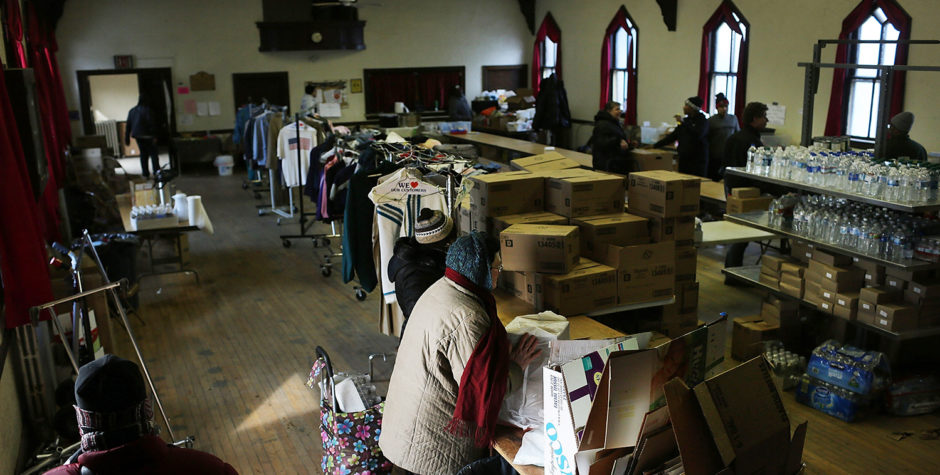It’s Time to Stop Discriminating against Churches in Disaster Relief Funding
Christian charity has been the greatest financial force for good the world has ever known, yet churches are being penalized and discriminated against in providing vital aid to those in the most need after some of the worst natural disasters we’ve ever witnessed in America.
When natural disasters strike, churches and other houses of worship often serve as a place of refuge. They provide shelter, food, water, and basic necessities to those who have been affected by severe weather events such as hurricanes, tornadoes, tropical storms, and earthquakes.
Recently, Texas and Florida have both been hit by disastrous hurricanes of massive and devastating proportions. Hurricanes Harvey and Irma have proven to be among the most destructive hurricanes to make landfall in the United States in recent history. In fact, 2017 is the first time “in recorded hurricane history . . . two category-4 hurricanes . . . slammed into the United States during the same year.” Hurricane-battered Texas and Florida need disaster relief help now more than ever, and churches are playing a critical role in providing that relief.
Unfortunately, regulations from the Federal Emergency Management Agency (FEMA) are making it hard for churches to be as effective as they are capable. Specifically, houses of worship are currently ineligible to apply for FEMA Public Assistance grants, which are used to repair or replace damaged non-profit buildings and facilities. This inequity is hindering participating churches from assisting at their maximum capacity during a time of extreme need.
On Tuesday, Senators Roy Blunt (MO), John Cornyn (TX), Ted Cruz (TX), and James Lankford (OK) introduced legislation to allow for religious institutions to apply for this federal assistance on an equal footing. This legislation, the Federal Disaster Assistance Nonprofit Fairness Act, would put an end to regulations that are clearly discriminatory. Religious institutions, which have been working so tirelessly to help their communities, are entitled to apply for disaster relief assistance just as much as any other non-profit entity. Churches, synagogues, and other houses of worship serve as critical public institutions that provide vital support within communities to help victims during these times of need, and should not be eliminated from consideration for assistance because of a faith-based mission. This is the kind of discriminatory policy against faith-based organizations and churches that has no place in the United States.
Senator Roy Blunt (MO), one of the sponsors of the bill, said, “It is imperative that they [religious institutions] have the resources they need to recover and rebuild.” Senator Lankford (OK) added that the bill “shouldn’t be controversial.”
President Trump expressed his support when he tweeted, “Churches in Texas should be entitled to reimbursement from FEMA Relief Funds for helping victims of Hurricane Harvey (just like others).” President Trump’s tweet came after three Texas churches filed lawsuits challenging FEMA’s policy.
Several members of the Congressional Black Caucus, a group of 48 Democrats and one Republican, echoed President Trump’s sentiment, saying that FEMA should make recovery relief funds available to houses of worship, especially if those institutions are involved in relief efforts to help the victims.
It is important to note that this legislation does not appropriate new funds, but simply allows religious institutions to apply for Public Assistance program grants in the same way that other private nonprofit facilities can. The proposed legislation specifies that FEMA’s disaster relief program is a general government program under which aid is provided using standards that are impartial to religion.
Simply put, it is unfair that churches and other houses of worship be excluded from federal FEMA relief funding. These churches deserve and need equal access to emergency relief, and this bill will help ensure that they are treated fairly and have a chance to receive the emergency funding that will allow them to maximize their community service.
ACLJ encourages the swift enactment of this change. We call on Congress to send this legislation to the President for his signature without delay.
